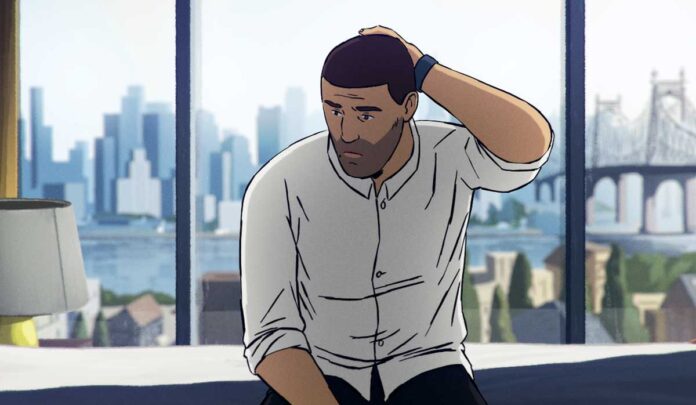The Philadelphia Film Festival celebrates its 30th year with dozens of in-person screenings at area theaters as well as online. The fest opens October 20 with the Philadelphia premiere of the Oscar hopeful, “Belfast,” written and directed by Kenneth Branagh, and closes 140 features, shorts, and documentaries, 11 days later with Peter Hedges’ drama, “The Same Storm.”
In between, moviegoers can see hotly anticipated films like, “Spencer,” starring out actress Kristen Stewart as Princess Diana; out gay slow-cinema master Apitchatpong Weerasethakul’s only-in-theatres, “Memoria,” staring Tilda Swinton; out gay filmmaker Malcolm Ingram’s “Clerk,” a documentary about his mentor, filmmaker Kevin Smith; and even a revival of Elaine May’s hilarious 1971 comedy, “A New Leaf.” (Read Walter Matthau’s character as a gay man for extra amusement).
There are several features, documentaries, and shorts with LGBTQ content at this year’s program, including “Mayor Pete” the forthcoming doc on Pete Buttegieg and his historic Presidential campaign. Here is a rundown of what to watch.
An absolute must of the festival is the remarkable documentary, “Flee,” which tells the true story of director Jonas Poher Rasmussen’s friend Amin, whom he first met as a teenager in Denmark. Amin, who is gay and Afghani, has never told his life story until now. Using animation and news footage, Rasmussen interviews Amin who claims, “I always had a tendency to be a little different.” Amin talks about his attraction to men, and the difficulties of accepting being gay; it brings shame on his family. But “Flee” is less about Amin’s sexuality, and more about the struggles he and his family face leaving the dangers of Afghanistan behind as they try to find safety elsewhere. Living illegally in Moscow, Amin, his siblings, and their mother encounter a series of hardships and setbacks and experience the constant fear of getting caught. Amin wisely entrusted his friend to tell his harrowing story about finding home. It is personal and political, and undeniably moving.
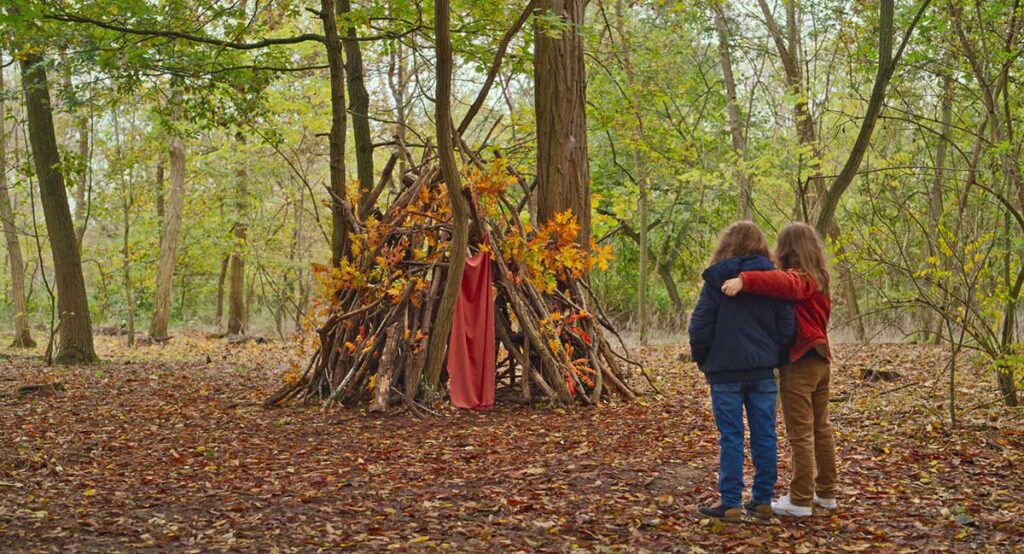
“Petite Maman” is lesbian filmmaker Céline Sciamma’s (“Portrait of a Lady on Fire”) enchanting drama about 8-year-old Nelly (Joséphine Sanz), who has just lost her grandmother. One afternoon, as her parents (Nina Meurisse and Stéphane Varupenne) clean out her grandmother’s house, Nelly meets Marion (Gabrielle Sanz), also 8, and the two become friends. Then some things are revealed that shift the dynamic between the characters, causing viewers to recalibrate the film’s relationships. Full of lovely, natural scenes — such as the girls working together in the kitchen or in the woods — “Petite Maman” is a slight, austere, and beautifully realized drama.
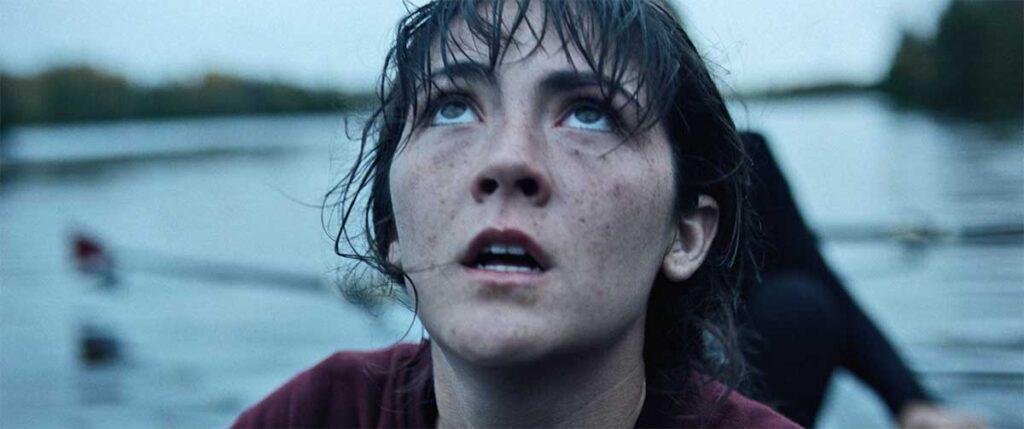
“The Novice” portrays Alex (Isabelle Fuhrman), a lesbian who joins her college rowing team. But far from being an inspirational sports drama, this intense film, written and directed by Lauren Hadaway, shows how Alex’s obsession for perfection consumes her. This topic is significant; many queer youths and adults strive for perfection in ways that can cause harm. Fuhrman gives a committed performance as this case study in self-destruction shows how Alex sabotages everything and everyone around her, including her relationship with Dani (Dilone).
The documentary “Searchers,” by Pacho Velez, investigates what a cross-section of New Yorkers are looking for when they look for love online. The concept is viable, and Velez shows his subjects swiping right or left, answer questions, such as “Do you like sex gentle or rough,” and discussing how they should interpret or respond to messages they receive on dating sites and apps. “Searchers” will charm or annoy viewers, who may pass the time thinking of how they would respond. The few insights about how to read a profile may be valid, but Velez takes a superficial approach to his topic. Moreover, he focuses on his own efforts to get a date, even asking his mom to assist him in picking a girl to go out with.
“Searchers’” LGBTQ subjects do get some nice moments, as when a young gay guy explains how much he hates the question, “Into?” The stories about dating are best. One woman describes a wonderful second date with a woman she met on an app; another lesbian tells an ingratiating story about a date she turned down; and a gay man recounts a romantic, touching tale of meeting his last partner. “Searchers” could have had more moments like this, because when the film focuses on a man who lives with his mother, or a young woman looking for an arrangement, it is painfully tedious.
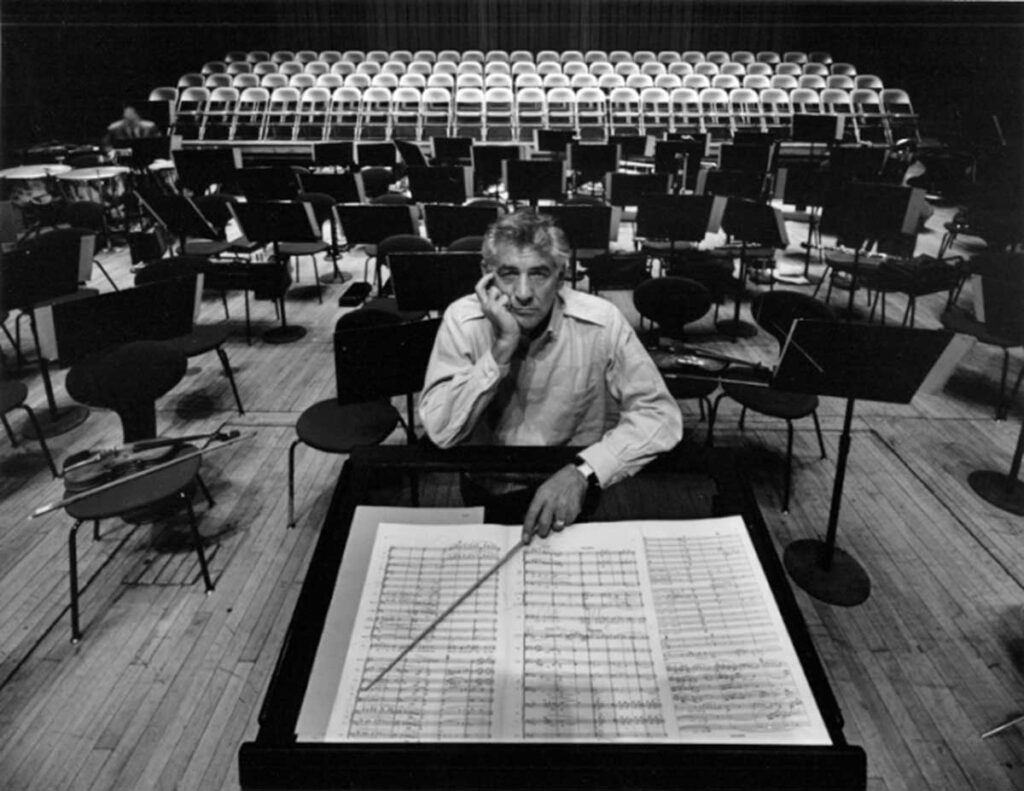
The documentary “Bernstein’s Wall” is disappointing, and not just because it glosses over Bernstein’s homosexuality, which is addressed only in snippets from letters he exchanges with his lover Aaron Copeland, and later, Bernstein’s wife, Felicia. This portrait of the fascinating, larger-than-life gay composer tries to cover too much ground and does little of it well. Director Douglas Tirola traces Bernstein’s early days, and his fraught relationship with his father, to his musical education at the Curtis Institute of Music and the Tanglewood Music Center, and his first job as assistant conductor for the New York Philharmonic. He uses interviews, photographs, archival film clips, and letters to examine the composer and conductor’s life and work. The footage of Bernstein teaching and conducting is terrific, but the film itself is unfocused. “Bernstein’s Wall” only briefly mentions the composer’s collaborations on the films, “On the Town” and “West Side Story,” and his televised Young People’s Concerts, and music education efforts. Tirola instead emphasizes Bernstein’s political activism, shoehorning clips and recordings (of Nixon, for example) to provide context of the times. While this work is notable and important, it should have been its own film. “Bernstein’s Wall” will likely only satisfy fans of this cultural ambassador who want to recall his accomplishments; it fails to truly illuminate its subject.
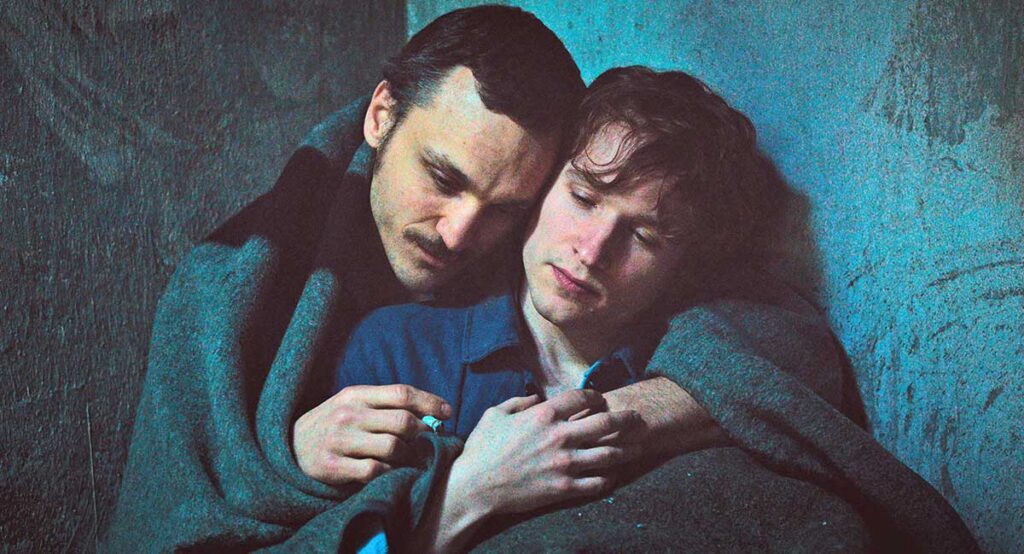
“Great Freedom” is a graphic, ecstatic film about a young man, Hans Hoffman (Franz Rogowski) who is jailed, repeatedly, for being gay. (It is 1968 Germany, when Paragraph 175 is in effect). Hans’s life behind bars is grim, but he finds a way of coping, seeking love with another inmate inside. The film also presents his previous episodes of incarceration back in 1945 to magnify his experiences. Rogowski gives a committed performance and the film, directed by Sebastian Miese (who also cowrote the screenplay) showcases him well, with shots that are framed and illuminated to convey both his restricted sense of space and his “great freedom.” This is a dense, intense film, but also one that is extremely rewarding.
The Philadelphia Film Festival also gives viewers another chance to see “Perfume de Gardenias,” by writer, director and Afroqueer artist Macha Colon. Her intimate bittersweet film concerns Isabel (Luz María Rondón), a feisty octogenarian who loses her husband of 53 years in the pre-credit sequence. During his wake, she is approached by Toña (Sharon Riley) to help design funeral decorations for others in their Puerto Rican community. Isabel reluctantly agrees, but comes to enjoy the work, finding purpose in creating inventive displays — such as one for a local carpenter. But Isabel gets concerned when she realizes what Toña is really up to. And when her queer neighbor, Julia (Blanca Rosa Rovira Burset), starts having serious health issues, Isabel takes it upon herself to care for Julia, despite her neighbor’s stubbornness. “Perfume de Gardenias” is leisurely paced, but charming, and Isabel is an engaging heroine, who can handle her bratty adult children and create fabulous designs. When a gay man calls Isabel a “fierce bitch” during one of the funerals, his compliment is dead on.
As for the festival’s shorts, three are striking in different ways. “Trade Center” is Adam Baran’s, excellent, naughty, and wistful short about sexual hotspots in the pre-9/11 World Trade Center; “Senior Prom” is a terrific documentary about a queer prom for members of an LGBTQ retirement home; and “Flex” is a downright weird and visually stylish comic short about a bodybuilder.
For tickets, showtimes, venues, and COVID precautions, visit the Philadelphia Film Society: https://filmadelphia.org/festival/.
